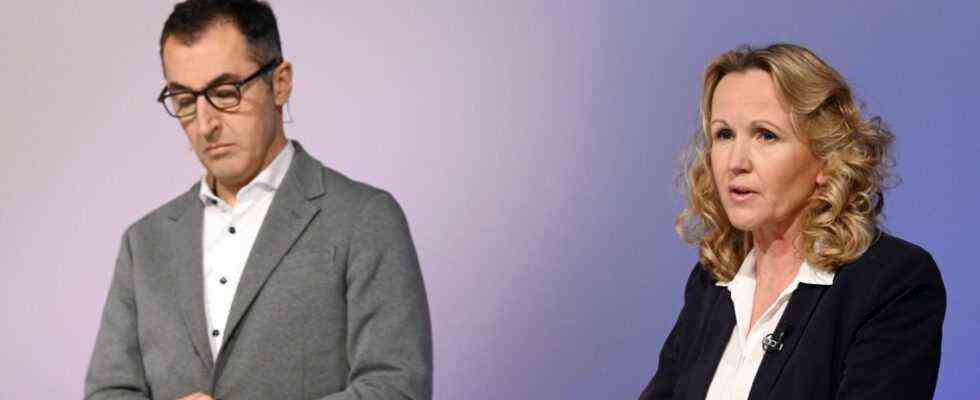Federal Minister of Agriculture Cem Özdemir wants to promote the legalization of cannabis and sees great interest among farmers in Germany. “Many farmers are in the starting blocks to grow hemp,” said the green of the Picture on sunday. As soon as the Bundestag has passed the Health Minister’s law, agriculture will also grow these crops.
The traffic light coalition made up of the SPD, the Greens and the FDP is planning a “controlled sale of cannabis to adults for consumption in licensed shops”. This would “control the quality, prevent the transfer of contaminated substances and ensure the protection of minors,” says the coalition agreement. The cultivation of hemp plants has so far been allowed for medical purposes.
Özdemir rejected criticism of the legalization plans for the substance, which had previously been classified as an illegal drug. “Nobody should smoke their pears away, but I am pleased that the madness of the cannabis ban is finally ending,” he told the newspaper. The police unions have expressed skepticism about this in the past. The Union parties are also strictly against cannabis at the counter and refer to the risks.
“Valued food as much as cars”
Özdemir also wants to achieve reasonable prices for food and agricultural products. “There must be no more junk prices for food, they are driving farms into ruin, preventing more animal welfare, promoting species extinction and polluting the climate,” said Özdemir. He wanted people in Germany to appreciate their food as much as their cars. “Sometimes I have the feeling that a good engine oil is more important to us than a good salad oil,” criticized the minister. However, food is unlikely to become a luxury. “But the price has to express the ecological truth more strongly,” said Özdemir.
There are three important goals: a safe and good income for the farmers, healthy food for everyone and more animal welfare, climate and environmental protection. The number of livestock in Germany must be reduced: “The number of animals must be based on the available space.” In future, he will direct the investment subsidies towards good keeping conditions in the stables. This is a “win-win for humans and animals”.
The Minister of Agriculture is also aiming to expand the area of organically tilled fields by 2030 from just under ten percent to 30 percent at present, and to “use the state’s buying power”: catering in public institutions should be converted to more regional and organic products. “The state must be a role model.”
Lemke warns against putting climate protection above species protection
Özdemir’s cabinet colleague, Federal Environment Minister Steffi Lemke, calls for a sharp reduction in the use of pesticides in agriculture. “I am not assuming that we will be able to do without pesticides completely within four years. But we need a significant reduction if we want to stop insect death,” said the Green politician in the newspapers of the Funke media group. “We can reduce the use of pesticides through financial incentives, but also through regulatory law,” she added.
She is convinced that most farmers want to use less pesticides. For decades, however, they have been forced into a predicament by the European agricultural policy, with farms growing and having to generate more income or being bought up. Lemke criticized the decision to continue the European agricultural policy for the next seven years with the participation of the previous government. “We urgently have to get out of this system of simple area premiums, which are paid without ecological consideration. The traffic light government must prepare for this over the next four years. Only in this way will we have enough healthy and varied food,” demanded the environment minister.
Lemke also warned in the debate about the expansion of renewable energies against putting climate protection above species protection. There are two major ecological crises on the planet that “must be resolved together: the climate crisis and the crisis of species extinction,” said the minister. “One is just as important as the other.” Both crises threatened the natural foundations of life to a blatant extent.

